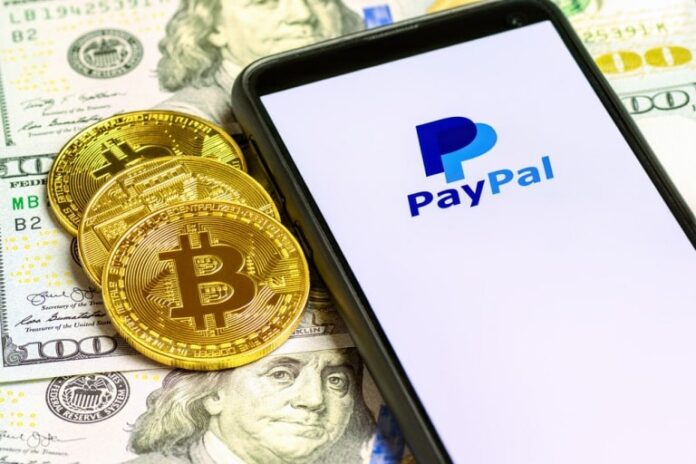Cryptocurrency represents a paradigm shift in the way we perceive money, transactions, and the very fabric of the financial infrastructure. It is a digital or virtual form of currency secured by cryptography, which makes it nearly impossible to counterfeit or double-spend. Many cryptocurrencies are decentralized networks based on blockchain technology—a distributed ledger enforced by a disparate network of computers.
In the burgeoning digital economy, cryptocurrency gateways serve as vital conduits, enabling the seamless exchange of digital currencies for goods and services. These gateways are the bridges that connect the traditional financial world with the innovative realm of cryptocurrency, allowing for the fluid movement of digital assets in a secure, efficient, and scalable manner.
Basic Information on Cryptocurrency Gateways
A cryptocurrency gateway is a digital payment platform that enables merchants to accept transactions in various cryptocurrencies. It acts as a mediator between the seller’s and the buyer’s digital wallets. Here’s a closer look at its operation and how it differs from traditional payment processors.
1. Definition
A cryptocurrency gateway facilitates the acceptance of digital currencies as payment for goods and services. It processes the transfer of cryptocurrency from the customer’s wallet to the merchant’s, handling the necessary security checks and verifications.
2. Basic Mechanics
When a customer opts to pay with cryptocurrency, the gateway generates a payment address (often in the form of a QR code) for the transaction, which is then verified across the blockchain network. Upon confirmation, the gateway approves the transaction and notifies the merchant.
3. Differences from Traditional Processors
Unlike traditional payment processors, cryptocurrency gateways do not rely on financial institutions to verify transactions. Instead, they use blockchain technology, which allows for faster processing times and lower fees. Additionally, crypto transactions are irreversible, which reduces the risk of chargebacks for merchants.
The Importance of Cryptocurrency Gateways
Cryptocurrency gateways are becoming increasingly important in the business world due to the growing importance of cryptocurrency and the facilitation of everyday transactions.
1. Growing Importance of Cryptocurrencies
As digital currencies grow in popularity, businesses are looking to capitalize on the new market of crypto-savvy consumers. Cryptocurrency gateway makes this possible by providing the infrastructure needed to process digital currency transactions.
2. Facilitation of Everyday Transactions
Gateways simplify the process of using cryptocurrencies for everyday transactions, making it as easy for consumers to spend digital currency as fiat currency. This convenience is a significant step toward the mainstream adoption of cryptocurrencies.
How Cryptocurrency Gateways Work?
The technical transaction process through a gateway involves several steps:
1. Technical Explanation
When a transaction is initiated, the gateway securely communicates with the blockchain network to verify the funds and the transaction’s legitimacy. It then updates the merchant’s account with the transaction details, ensuring that the correct amount of cryptocurrency is transferred.
2. Ensuring Secure and Efficient Transactions
Gateways use advanced encryption and security protocols to protect transaction data. They also provide real-time processing, which ensures that transactions are both secure and efficient.
3. Conversion of Cryptocurrencies
Many gateways offer the option to convert cryptocurrencies to fiat currencies instantly. This is done to protect merchants from the volatility of the crypto market, ensuring that they receive the expected amount in their local currency.
Cryptocurrency gateways are more than just payment processors; they are an essential part of the infrastructure that supports the digital economy. By providing secure, efficient, and user-friendly platforms for cryptocurrency transactions, they are helping to shape the future of commerce.
Advantages of Using Cryptocurrency Gateways
The adoption of cryptocurrency gateways comes with a host of advantages that can significantly benefit businesses.
1. Lower Transaction Fees
Cryptocurrency gateways often have lower fees than traditional banking systems because they eliminate the need for intermediaries. This reduction in costs can be particularly advantageous for small businesses operating with thin margins.
2. Faster International Transactions
Cryptocurrency transactions can be completed in a matter of minutes, regardless of the location of the parties involved. This is a stark contrast to traditional banking systems, where international transactions can take several days.
3. Enhanced Security Features
The use of blockchain technology ensures that each transaction is encrypted and recorded on a ledger that is virtually tamper-proof. This level of security is inherent in the technology and provides peace of mind for both merchants and customers.
Selecting a Cryptocurrency Gateway for Your Business
When choosing a cryptocurrency gateway, businesses should consider the following features:
- Security: Look for gateways that offer robust security measures, including encryption, two-factor authentication, and compliance with security standards.
- Currencies Supported: Ensure that the gateway supports a wide range of cryptocurrencies to cater to various customer preferences.
- Ease of Use: The gateway should be user-friendly for both the merchant and the customer, with a straightforward integration process and a simple transaction experience.
- Fees: Compare the fee structures of different gateways. Some may offer lower transaction fees or better rates for currency conversion.
- Customer Support: Good customer service is crucial, especially when dealing with the complexities of cryptocurrency transactions.
Comparison of Popular Cryptocurrency Gateways
BitPay vs. Coinbase Commerce: BitPay is known for its reliability and broad adoption, while Coinbase Commerce is praised for its seamless integration with the Coinbase exchange and user-friendly interface.
PayPal’s Crypto Services: PayPal offers a familiar interface and is a good option for businesses already using PayPal’s traditional payment services.
